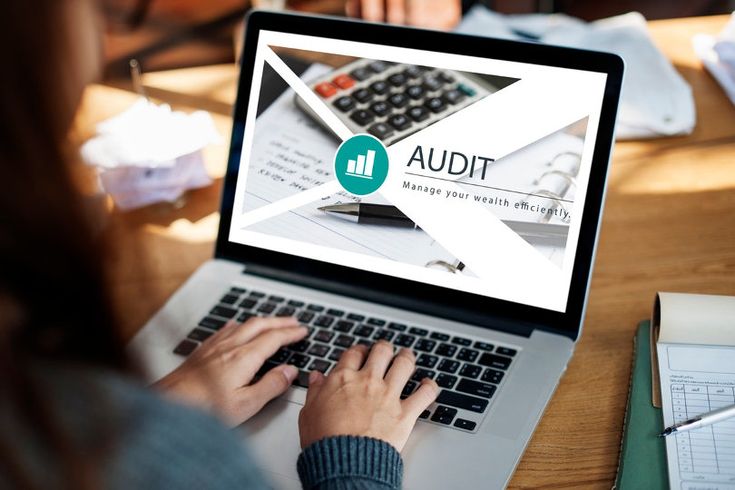Ensuring quality and compliance in a supply chain is essential for any business. Supplier audit services play a critical role in maintaining these standards. These services help businesses identify risks, ensure regulatory compliance, and enhance overall operational efficiency. With the growing complexity of supply chains, the need for reliable audits has never been more significant. Let’s explore how supplier audit services contribute to building trustworthy partnerships and improving business performance.
What Are Supplier Audit Services?
Supplier audit services involve evaluating a supplier’s processes, facilities, and quality management systems. This assessment ensures they meet regulatory, contractual, and company-specific requirements. These audits provide detailed insights into the supplier’s practices, helping businesses mitigate risks. Auditors examine various aspects, such as production capabilities, quality control measures, and adherence to ethical standards. The goal is to ensure suppliers consistently deliver high-quality products and services.
Regular audits foster transparency and strengthen relationships between businesses and suppliers. They also identify potential areas for improvement.
Why Are Supplier Audit Services Important?
Supplier audit services ensure suppliers meet agreed-upon standards, reducing risks in the supply chain. Without audits, businesses risk delays, quality issues, and compliance violations. Regular audits help businesses maintain consistency and reliability in their operations. Moreover, these evaluations uncover inefficiencies or gaps in the supplier’s processes.
With effective audits, businesses can implement corrective measures quickly. This process not only improves supplier performance but also safeguards the company’s reputation.
Key Benefits of Supplier Audit Services
1. Improved Quality Assurance
Supplier audit services help verify the quality of materials and finished products. They identify defects before they impact the business. Quality assurance through audits ensures products meet the desired standards consistently.
2. Risk Mitigation
Audits assess potential risks within the supplier’s operations. These could include non-compliance with safety regulations or ethical practices. Addressing these risks proactively saves businesses from costly penalties and reputation damage.
3. Enhanced Compliance
Supplier audit services ensure suppliers adhere to international, national, or industry-specific standards. Compliance with these regulations fosters trust and credibility with customers and stakeholders.
4. Strengthened Relationships
Regular audits build trust between businesses and suppliers. Clear communication during the audit process helps suppliers align their operations with the company’s expectations.
5. Cost Savings
Identifying inefficiencies during audits helps optimize supplier operations. Streamlined processes reduce wastage, resulting in significant cost savings over time.
Types of Supplier Audit Services
1. On-Site Audits
On-site audits involve physical inspections of the supplier’s facilities. Auditors examine processes, equipment, and working conditions. These visits provide a thorough understanding of the supplier’s operations and practices.
2. Desktop Audits
Desktop audits involve reviewing supplier documents, such as certifications, policies, and procedures. This type of audit ensures the supplier meets regulatory and contractual requirements without visiting their location.
3. Product-Specific Audits
Product-specific audits focus on the quality and compliance of particular products. These audits ensure the supplier follows the agreed specifications and standards.
4. Ethical Audits
Ethical audits assess the supplier’s adherence to labor laws, environmental practices, and ethical standards. They ensure the supplier operates responsibly and aligns with corporate social responsibility (CSR) goals.
Steps Involved in Supplier Audit Services
1. Pre-Audit Preparation
Businesses identify the audit’s objectives and scope. They communicate the requirements to the supplier and gather relevant documentation. Proper planning ensures the audit process is smooth and efficient.
2. Conducting the Audit
Auditors visit the supplier’s facility or review submitted documents. They evaluate processes, quality control measures, and compliance levels. Observations and findings are documented for further analysis.
3. Reporting Findings
Auditors provide a detailed report highlighting strengths, weaknesses, and non-compliance areas. This report serves as a roadmap for corrective actions.
4. Implementing Corrective Actions
Based on the audit report, suppliers address identified issues. Businesses collaborate with suppliers to improve processes and ensure continuous compliance.
5. Follow-Up Audits
Follow-up audits ensure the supplier has implemented corrective measures effectively. Regular monitoring helps maintain high standards over time.
Common Challenges in Supplier Audit Services
1. Resistance from Suppliers
Some suppliers may resist audits, fearing exposure of their weaknesses. Businesses must emphasize the benefits of audits to overcome this resistance.
2. Limited Resources
Conducting audits requires skilled personnel, time, and financial investment. Businesses must allocate resources strategically for effective audits.
3. Complex Supply Chains
Managing audits across multiple suppliers in different locations can be challenging. Businesses should prioritize high-risk suppliers for audits.
4. Varying Standards
Suppliers may operate under different regulatory or industry standards. Auditors must ensure these standards align with the company’s requirements.
Tips for Successful Supplier Audit Services
- Set Clear Objectives
Define the goals and scope of the audit before starting. Clear objectives guide the audit process effectively. - Engage Experienced Auditors
Trained auditors with industry expertise ensure thorough evaluations. Their insights improve supplier performance significantly. - Communicate Transparently
Maintain open communication with suppliers throughout the audit process. These fosters trust and encourages cooperation. - Prioritize Follow-Up Actions
Address audit findings promptly. Implementing corrective measures ensures continuous improvement and compliance. - Utilize Technology
Leverage audit management tools to streamline the process. Technology enhances efficiency and accuracy in audits.
The Future of Supplier Audit Services
With evolving supply chain dynamics, supplier audit services will become more sophisticated. Businesses are increasingly adopting digital tools for audits. These technologies include data analytics, real-time monitoring, and blockchain for transparent operations. Virtual audits are also gaining popularity, offering convenience and cost-efficiency.
Moreover, businesses are emphasizing sustainability and ethical practices. Audits focusing on environmental and social responsibility will continue to grow. As global regulations become stricter, supplier audit services will remain indispensable.
Conclusion
Supplier audit services are vital for ensuring quality and compliance in today’s competitive market. They protect businesses from risks, enhance supplier relationships, and improve operational efficiency. By conducting regular audits, businesses can maintain high standards and build trust with stakeholders. With a proactive approach, supplier audit services pave the way for long-term success.


